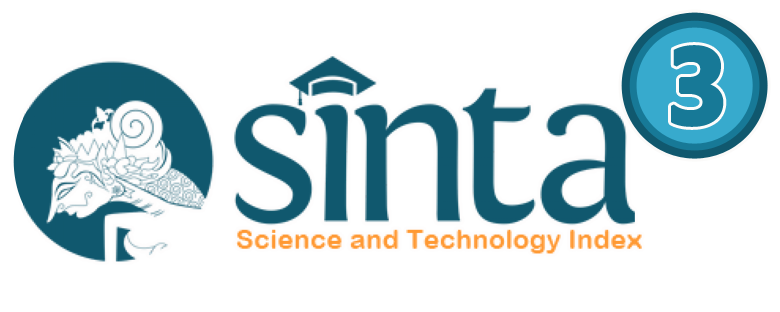Forgiveness Process for Students in Assignment Groups
DOI:
https://doi.org/10.18326/ijip.v5i2.663Keywords:
Pemaafan; Mahasiswa; Kelompok/ Tim, Psikologi Pemaafan, Psikologi PositifAbstract
This research was conducted to determine the dynamics of
student forgiveness in a work group. The number of subjects in
this research were 4 students who had been in a task group and
had felt disappointed and hurt by the treatment of members in
one group. This research used a qualitative approach with a
phenomenological research design. This was done to obtain more
in-depth results regarding the dynamics of student forgiveness.
The data analysis method used in this research was thematic
analysis. The results of this research showed the dynamics of
student forgiveness were different. From the four subjects, there
were subjects who had forgiven, there were also those who were
in the process of forgiving and there were subjects who had not
yet forgiven. The three aspects explained by Nashori (2011) were
also revealed in this research, meaning that four subjects brought
up aspects of forgiveness conveyed by Nashori (2011). Apart from
that, the most important finding in the research was the existence
of forms of forgiveness from students and the process of giving
forgiveness.
References
S. Soekanto, “Sosiologi: suatu pengantar,” 1986.
S. W. Sarwono, “Psikologi sosial psikologi kelompok dan psikologi
terapan,” 2005.
“Kelompok Mahasiswa Serang Kontrakan,” SINDOnews Nasional.
Accessed: Dec. 28, 2023. [Online]. Available:
https://nasional.sindonews.com/berita/919091/149/kelompok-
mahasiswa-serang-kontrakan
Okezone, “Salah Paham, Mahasiswa Tiga Fakultas Saling Serang :
Okezone Edukasi,” https://edukasi.okezone.com/. Accessed: Dec.
, 2023. [Online]. Available:
https://edukasi.okezone.com/read/2014/11/27/65/1071606/sa
lah-paham-mahasiswa-tiga-fakultas-saling-serang
“surah An-Nisa - 149-155,” Quran.com. Accessed: Dec. 28, 2023.
[Online]. Available: https://quran.com/id/wanita/149-155
M. Abu-Nimer and I. Nasser, “Forgiveness in The Arab and Islamic
Contexts,” Journal of Religious Ethics, vol. 41, no. 3, pp. 474–494,
, doi: 10.1111/jore.12025.
M. Al-Misri and A. Amin, Ensiklopedia akhlak Muhammad saw. Pena
Pundi Aksara, 2009.
“surah Ash-Shuraa - 1-53,” Quran.com. Accessed: Dec. 28, 2023.
[Online]. Available: https://quran.com/id/musyawarah
R. Muhammadiyah, “Anjuran Berbuat Ihsan,” Muhammadiyah.
Accessed: Dec. 28, 2023. [Online]. Available:
https://muhammadiyah.or.id/anjuran-berbuat-ihsan-2/
F. Nashori, “Meningkatkan kualitas hidup dengan pemaafan,”
Unisia, no. 75, pp. 214–226, 2011.
S. Freedman, R. D. Enright, and J. Knutson, “A progress report on
the process model of forgiveness,” in Handbook of forgiveness,
Routledge, 2007, pp. 417–430.
R. Powell, “Forgiveness in Islamic ethics and jurisprudence,”
Berkeley J. Middle E. & Islamic L., vol. 4, p. 17, 2011.
P. N. Balai Pustaka, “Kamus besar bahasa Indonesia,” (No Title),
“surah Ali ’Imran - 1-200,” Quran.com. Accessed: Dec. 28, 2023.
[Online]. Available: https://quran.com/id/keluarga-imran
“surah At-Taghabun - 1-18,” Quran.com. Accessed: Dec. 28,
[Online]. Available: https://quran.com/id/hari-
dinampakkan-kesalahan
T. A. Arif, “Komitmen dengan Pemaafan dalam hubungan
persahabatan,” Cognicia, vol. 1, no. 2, 2013.
A. W. Gouldner, “The Norm of Reciprocity: A Preliminary
Statement,” American Sociological Review, vol. 25, no. 2, pp. 161–
, 1960, doi: 10.2307/2092623.
G. V. Caprara and C. Pastorelli, “Early emotional instability,
prosocial behaviour, and aggression: some methodological
aspects,” Eur J Pers, vol. 7, no. 1, pp. 19–36, Mar. 1993, doi:
1002/per.2410070103.
K. Collins and R. Bell, “Personality and aggression: the
Dissipation-Rumination Scale,” Personality and Individual
Differences, vol. 22, no. 5, pp. 751–755, May 1997, doi:
1016/S0191-8869(96)00248-6.
R. A. Emmons, “Abstract versus concrete goals: Personal striving
level, physical illness, and psychological well-being,” Journal of
Personality and Social Psychology, vol. 62, no. 2, pp. 292–300, 1992,
doi: 10.1037/0022-3514.62.2.292.
“The Vengeance Scale: Development of a Measure of Attitudes
Toward Revenge - ProQuest.” Accessed: Dec. 28, 2023. [Online].
Available:
https://www.proquest.com/docview/1292302083?parentSession
Id=oRjBGov1LIvB7wZCfqNmF5pY%2BgNfev%2BJxGz2RusuxNY%
D&sourcetype=Scholarly%20Journals
B. W. Darby and B. R. Schlenker, “Children’s reactions to
apologies,” Journal of Personality and Social Psychology, vol. 43, no.
, pp. 742–753, 1982, doi: 10.1037/0022-3514.43.4.742.
S. D. Boon and L. M. Sulsky, “Attributions of blame and
forgiveness in romantic relationships: A policy-capturing study,”
Journal of Social Behavior & Personality, vol. 12, no. 1, pp. 19–44,
R. Ball and P. Brown, “Ball and Brown (1968) after fifty years,”
Pacific-Basin Finance Journal, vol. 53, pp. 410–431, Feb. 2019, doi:
1016/j.pacfin.2018.12.008.
É. Mullet and M. Girard, “Developmental and cognitive points of
view on forgiveness,” in Forgiveness: Theory, research, and practice,
New York, NY, US: The Guilford Press, 2000, pp. 111–132.
M. E. McCullough, K. C. Rachal, S. J. Sandage, E. L. Worthington
Jr., S. W. Brown, and T. L. Hight, “Interpersonal forgiving in close
relationships: II. Theoretical elaboration and measurement,”
Journal of Personality and Social Psychology, vol. 75, no. 6, pp. 1586–
, 1998, doi: 10.1037/0022-3514.75.6.1586.
Downloads
Published
Issue
Section
License
Copyright (c) 2023 IJIP : Indonesian Journal of Islamic Psychology

This work is licensed under a Creative Commons Attribution-ShareAlike 4.0 International License.

 Indonesian Journal of Islamic Psycology is licensed under a
Indonesian Journal of Islamic Psycology is licensed under a 


